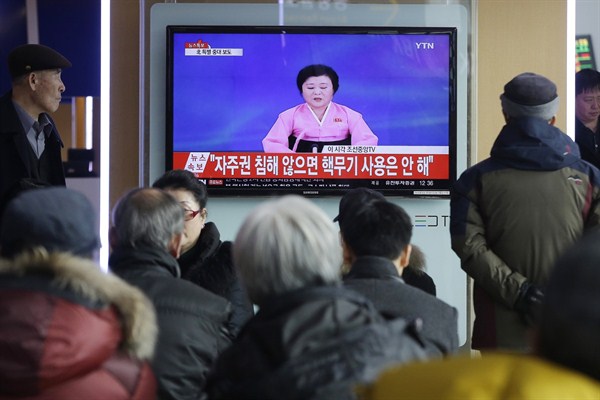North Korea claimed Wednesday that it tested a hydrogen bomb, which it referred to as an “H-bomb of justice.” The test prompted condemnation from across the globe, including Japan, the United States, the European Union, the United Nations and NATO. But Pyongyang’s announcement was also met with widespread skepticism; the seismological data from the test are comparable to the test of a smaller atomic device.
South Korea immediately responded to the nuclear test, saying it will cooperate with the international community to ensure that North Korea pays the price. President Park Geun-hye added that there would be a stern response if there were any further provocations from Pyongyang.
While North Korea said the test was in response to U.S. hostilities, many observers believe it is actually a response to worsening relations with China. “In a way, this is a protest against Beijing,” Bo Zhiyue, director of the New Zealand Contemporary China Research Centre at the Victoria University of Wellington, told the Washington Post. “They are saying: ‘We can do whatever we want. This shows our independence, and we don’t need your approval.’”

